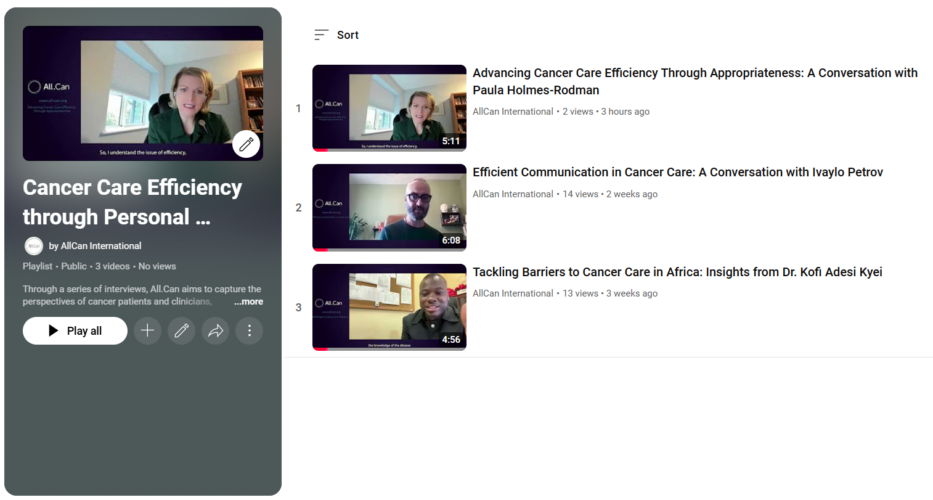
Advancing Cancer Care Efficiency Through Appropriateness: A Conversation with Paula Holmes-Rodman
As part of All.Can’s ongoing efforts to unite international stakeholders and generate evidence for prioritizing cancer care efficiency, we are excited to launch a new video featuring Paula Holmes-Rodman, anthropologist, medical writer and care giver.
Through a series of interviews, All.Can aims to capture the perspectives of cancer patients and clinicians, transforming their insights into impactful digital advocacy materials. This initiative seeks to make the concept of cancer care efficiency more accessible and actionable, ensuring that it is not just an abstract term but a tangible goal for healthcare systems worldwide.
Sharing heartfelt personal stories and actionable insights, Paula Holmes-Rodman highlights the importance of moving beyond a “one-size-fits-all” system to ensure that every patient’s unique needs are met. From addressing the challenges of late diagnoses in ovarian cancer to considering the specific barriers faced by autistic individuals navigating cancer care, this video delves into the nuanced ways that healthcare systems must evolve to deliver equitable, appropriate, and timely care.
The video raises vital questions: How can we make cancer care more adaptable? How do we address medical mistrust and sensory barriers? What does equity truly mean in a healthcare setting?
This video also aligns closely with the All.Can Action Guide for Efficient Cancer Care,
which emphasizes actionable strategies for improving cancer care systems worldwide. By showcasing real-life perspectives from patients and caregivers, the video transforms the Action Guide’s principles into relatable and practical insights, illustrating how healthcare systems can adapt to become more equitable, personalized, and effective.
Join us in advancing the conversation around efficiency and appropriateness in cancer care. Watch the video and learn how small, intentional changes—like adapting physical environments, asking the right questions at intake, and supporting communication needs—can make a world of difference.